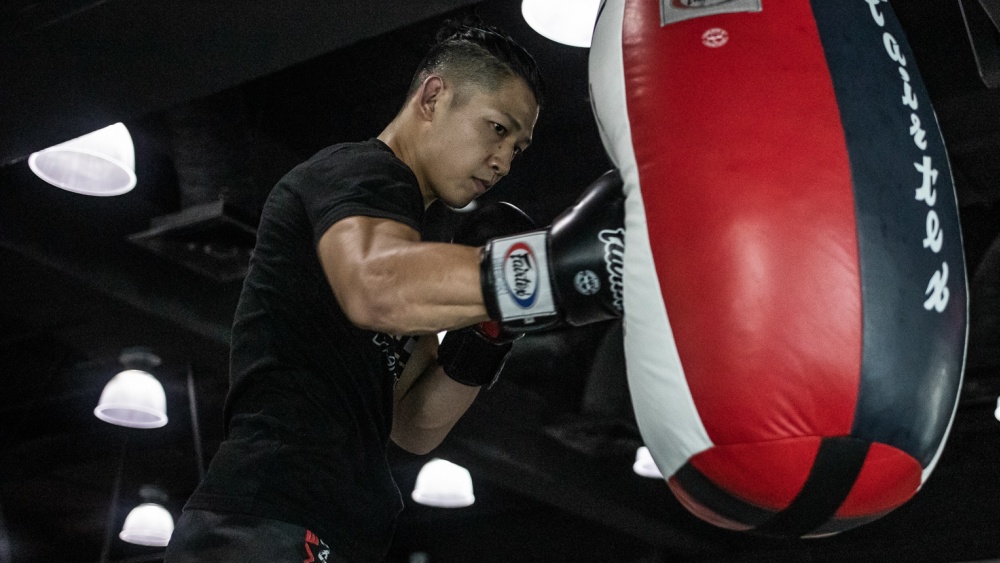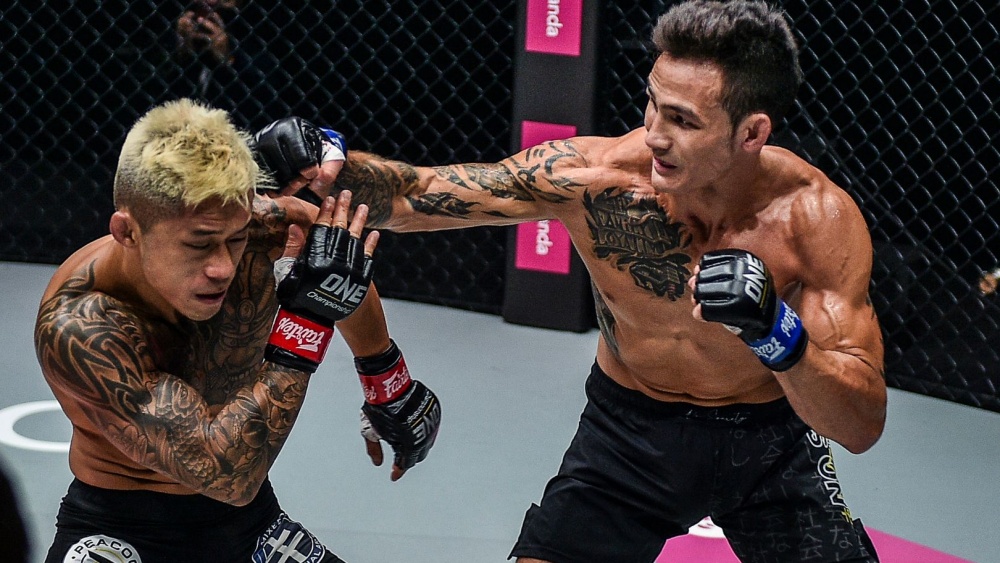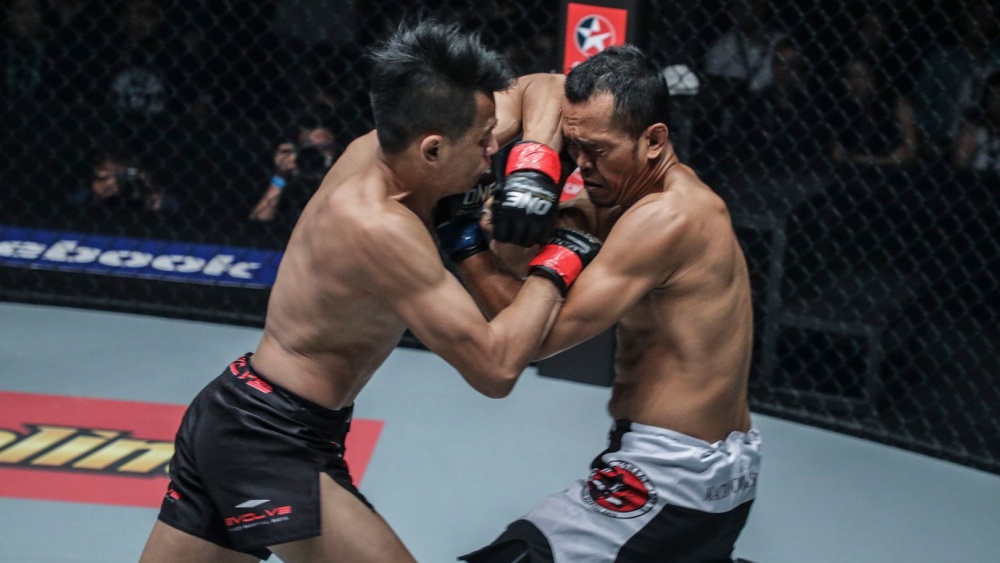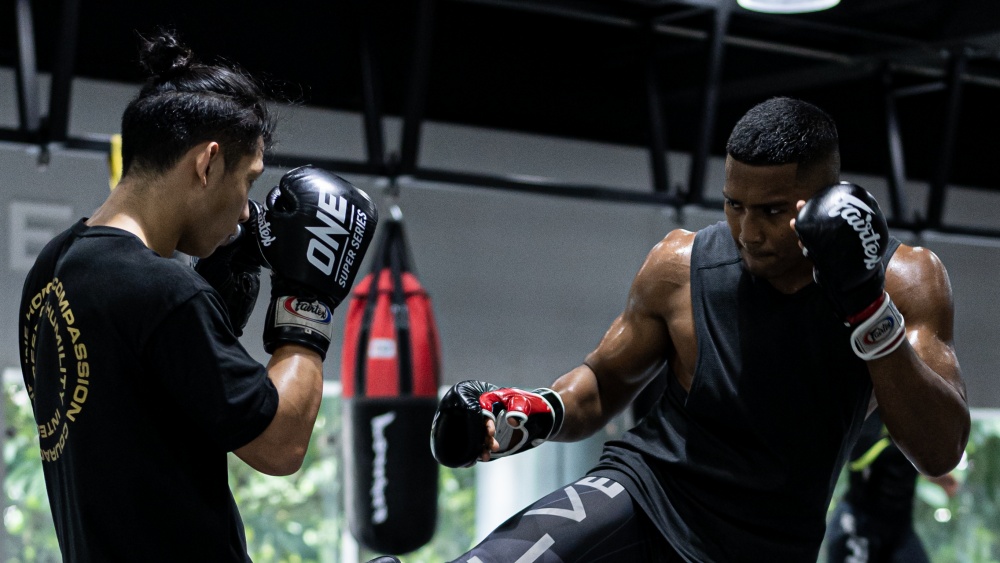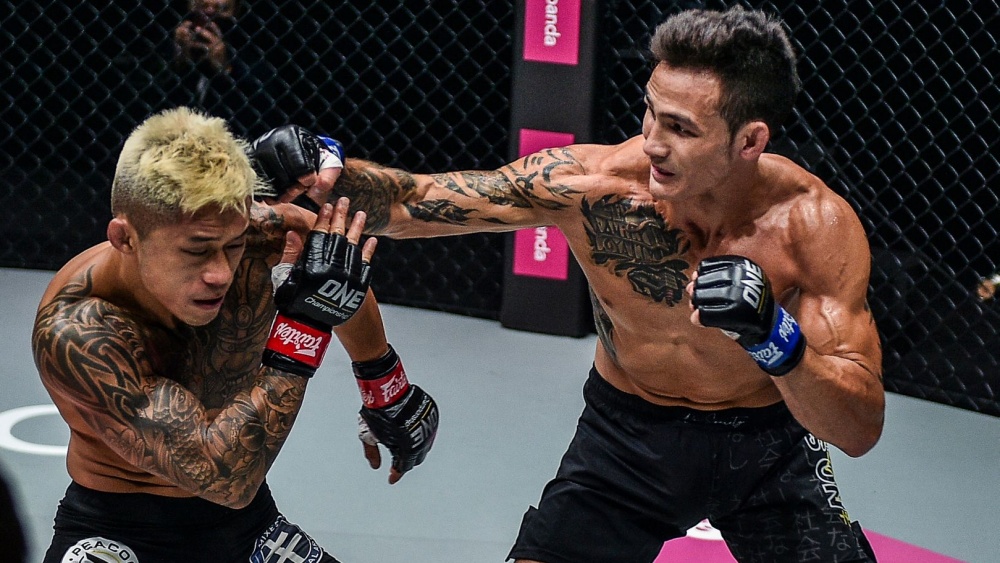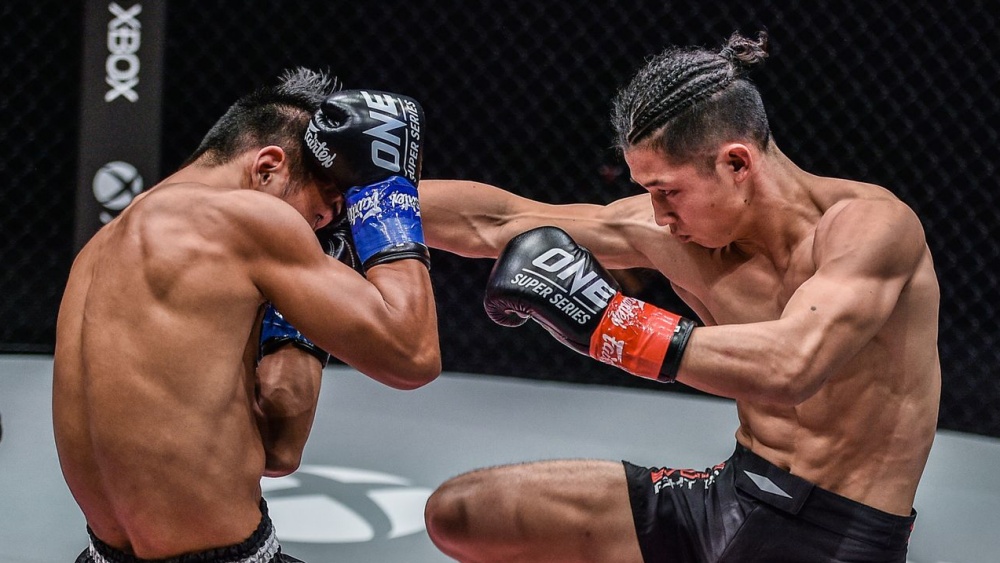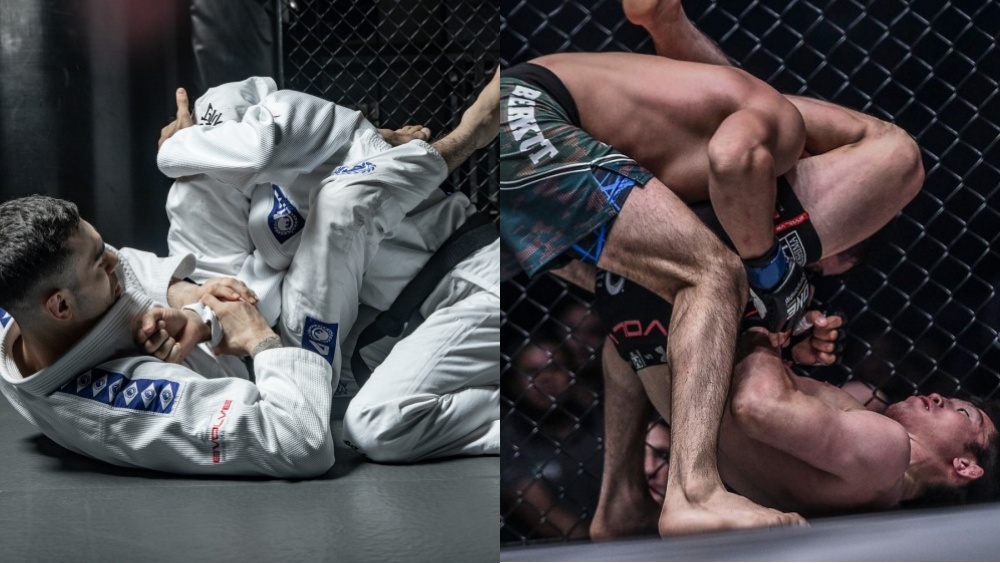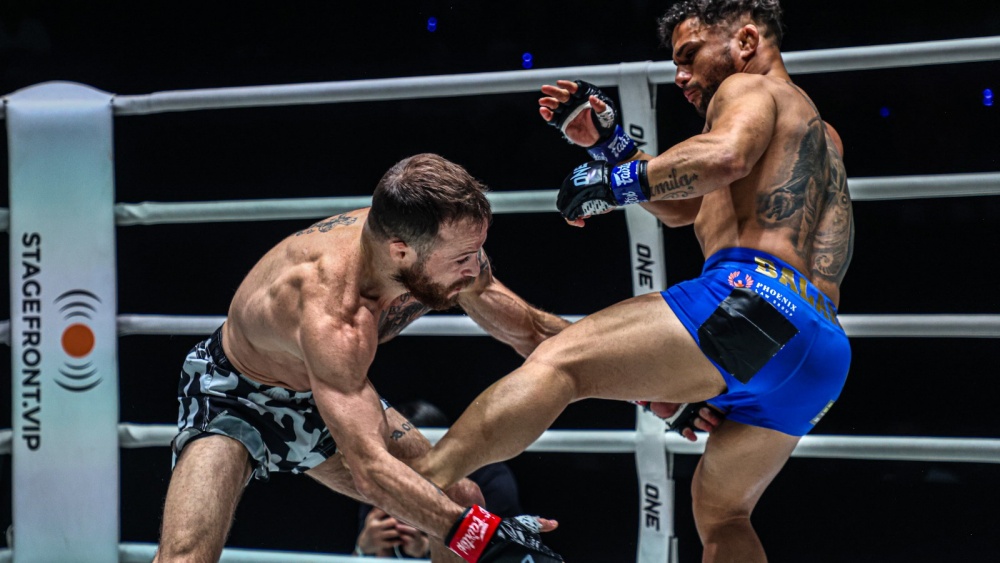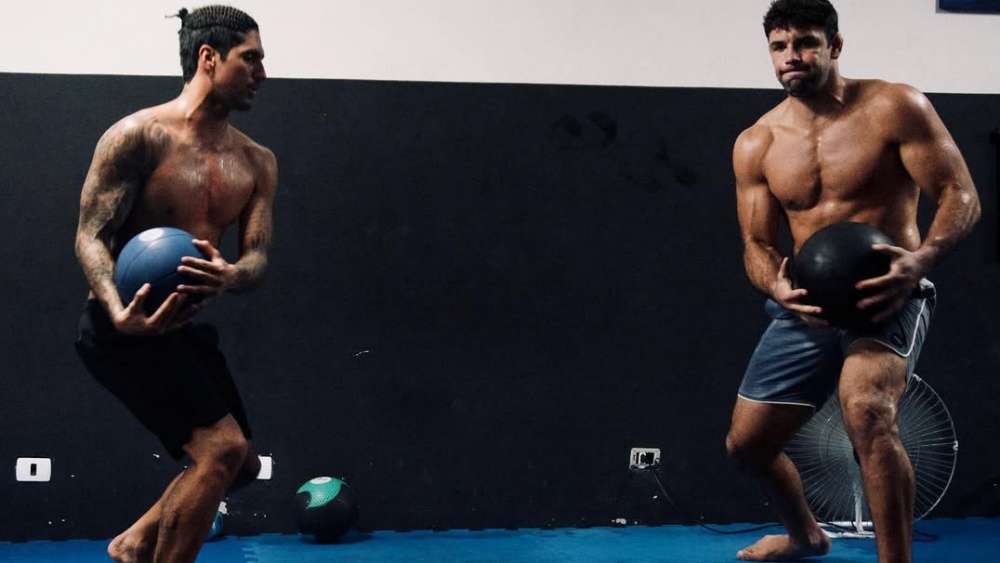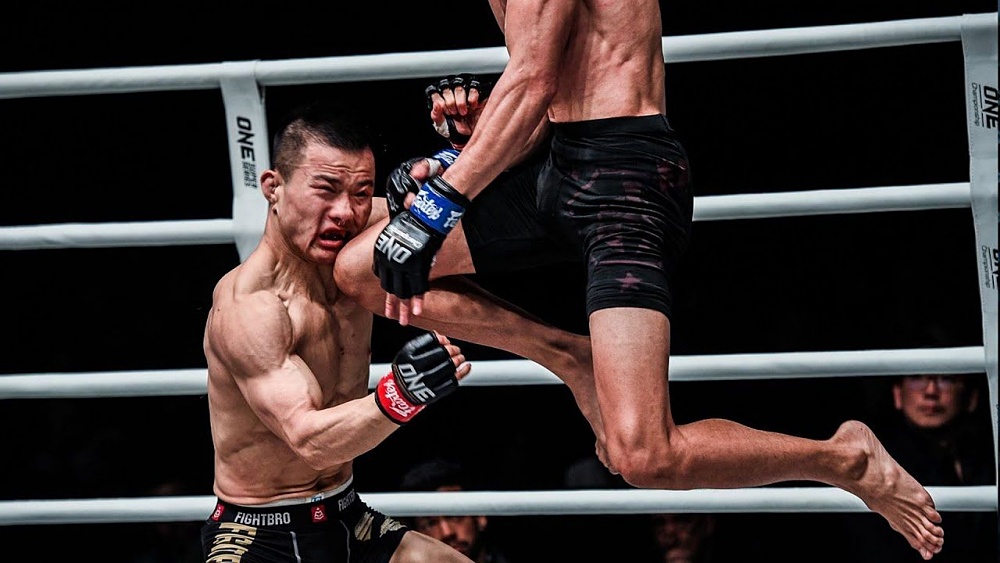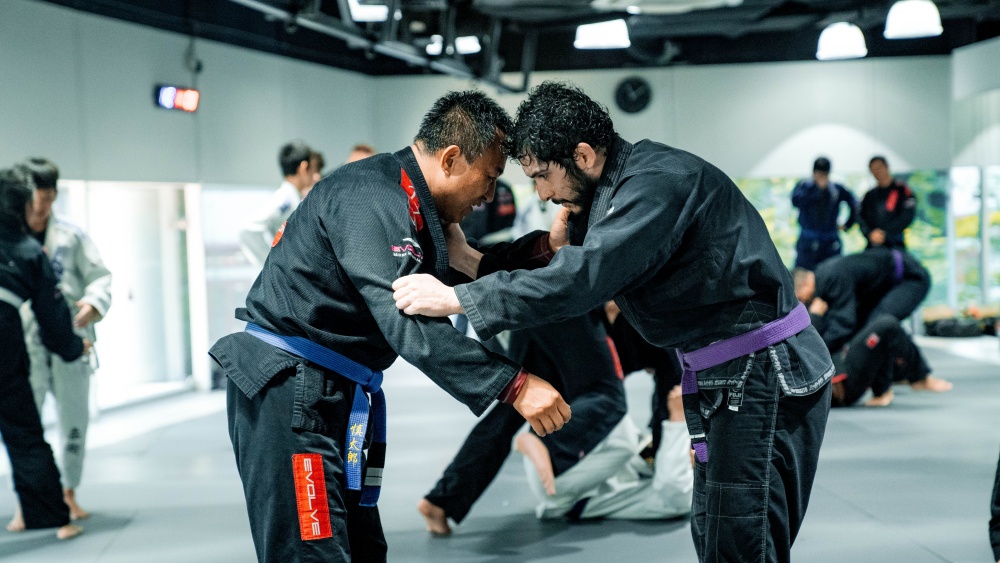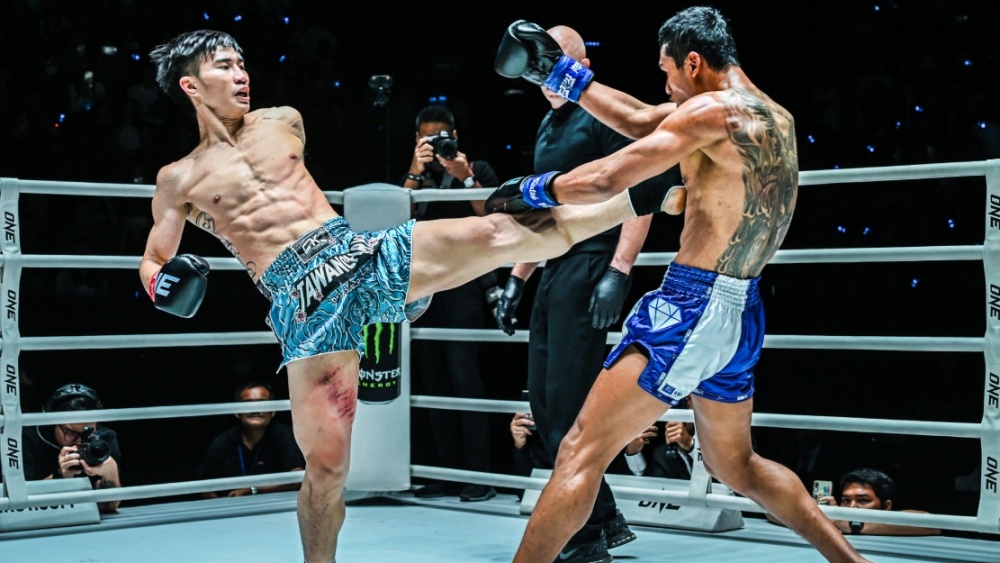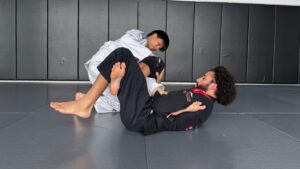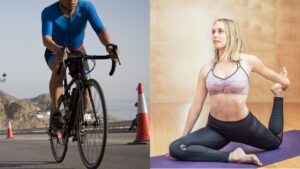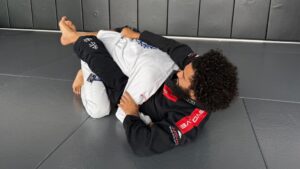A heavy bag is an invaluable tool for any mixed martial artist. They come in various shapes and sizes and can be used for a variety of training purposes. The most commonly seen in MMA gyms are boxing heavy bags and Muay Thai banana bags which generally weigh between 70 and 200 pounds.
The lighter bags swing more in nature and can be used to develop footwork, timing, and rhythm. The heavier bags, on the other hand, are used to develop power and the ability to sit down on your strikes. It can be daunting approaching a heavy bag for the first time, therefore having an idea of where to start from can help immensely.
Today, Evolve Daily shares a beginners guide on how to work the heavy bag for MMA.
Stance Basics
Before using the bag, it is essential to have an understanding of stances and footwork. If you are right-handed, you’ll start by getting into an orthodox fighting stance.
- Stand with your feet shoulder-width apart, taking a step back with your right leg while maintaining the shoulder distance between your feet.
- Now, turn your right foot 45 degrees, and bend your knees slightly. Put your hands up by your chin and tuck your elbows as close to your ribs as you can.
This basic orthodox stance makes you a smaller target, loads your dominant (rear) hand for a power shot, and keeps your weight balanced between both feet for quick movement. If you are left-handed, you’ll take on the same stance, with the only exception of your left foot behind your right foot. Left-handed boxers are commonly known as southpaws.
Start by practicing one stance, either orthodox or southpaw, until you feel comfortable. Once you’re ready, you can start alternating between the stances when training.
Footwork Basics
There are multiple types of footwork in MMA, but for today, we will be focusing on the basic step and slide pattern in an orthodox stance.
- To move forward, put your left foot forward, then slide your right foot up to return to your fighting stance.
- To move to your right, step with your right(back) foot to your right first, then slide your left foot over to return to your stance.
The technique for moving back and left uses the same concept. Also, try to keep your weight balanced between your feet and avoid leaning or lunging as you move. In general, you step with the foot closest to the direction you want to move first.
Striking Basics
The last step before starting your heavy bag training is learning the 7 fundamental strikes of MMA. You are allowed to use your hands, elbows, feet, shins, and knees to strike in mixed martial arts.
1) Jab
The jab is the most important strike in all combat sports. It is crucial to spend the majority of your time as a beginner developing your jab and avoiding bad habits. It is a straight punch with your lead hand, with no telegraphed movement. As with any punch, be sure to land with your first two knuckles.
2) Cross
The cross is your primary power punch. Usually coming from your dominant hand, it is often set up with your jab. Be sure to turn your hip and sit down into the shot or, it will be an arm punch that lacks power.
3) Uppercuts
Uppercuts can be tricky to throw for beginners. They are technically straight punches that come from side angles, but beginners often throw them as wild arcs. Watch as WBA World Champion Drian Francisco demonstrates 5 essential uppercut combinations.
4) Teep/Push Kick
The teep, specifically the lead leg teep, is essentially a foot jab. It is the longest weapon you have and it is the closest weapon to your opponent. You may lean back slightly but keep your body upright to avoid counters or sweeps.
5) Roundhouse Kick
The roundhouse kick is a staple for many martial arts. The Muay Thai version is the most commonly used in mixed martial arts.
6) Knees
In clinch range, you can throw elbows and knees at your opponent. Watch as Muay Thai World Champion Sam-A Gaiyanghadao demonstrates how to throw a rear straight knee on the heavy bag.
7) Elbow Strikes
Elbows are the densest bone in the human body and are incredibly effective weapons. The footwork is the same as your punching footwork, except for the spinning elbow. To ensure the tip of your elbow is as compact as possible, relax your wrist while striking. Your palms should face your elbow on the same sidearm.
Basic Heavy Bag Session
After understanding the basic, try a simple 3 mins x 5 rounds program. Perform the combinations based on the number of times listed before moving to the next one.
Final Thoughts
Now that you’ve learned the basics, you can start to create your heavy bag program. The program should be aimed at helping you reach your specific goals.
An example of this would be a program for weight loss vs a program to increase maximum power. The heavy bag program for weight loss would have more punch output and longer rounds, as opposed to shorter bursts at high intensities and longer rest intervals for a program to increase power.
Assessing your individual needs can take some time, and following various pre-made heavy bag routines when starting can help you get a feel for the different options.
The heavy bag is an essential part of training in MMA. It builds not only strength but stamina and also helps improve your techniques at the same time. After understanding some basics, try incorporating the heavy bags into your training. Mix and match, try various combinations, and see what works for you!
Try MMA Training
If you are interested in learning MMA, consider a complimentary trial class with Evolve!
Book your complimentary trial class with our World Champions below!
If you have any other questions regarding Evolve MMA and the programs we offer, you can get in touch with our membership executives at the following locations:
Evolve MMA (Far East Square)
26 China Street
Far East Square #01-01
Singapore 049568
Phone: (65) 6536 4525
Evolve MMA (Orchard Central)
181 Orchard Road
#06-01 Orchard Central
Singapore 238896
Phone: (65) 6536 4556
Evolve MMA (KINEX)
11 Tanjong Katong Road
#02-52 KINEX
Singapore 437157
Phone: (65) 6288 2293
Evolve MMA (Clarke Quay Central)
6 Eu Tong Sen Street
#04-18 Clarke Quay Central
Singapore 059817
Phone: (65) 6226 2150
